-
 Bitcoin
Bitcoin $117800
0.49% -
 Ethereum
Ethereum $4432
0.55% -
 XRP
XRP $3.106
1.07% -
 Tether USDt
Tether USDt $1.001
0.01% -
 BNB
BNB $835.8
1.74% -
 Solana
Solana $189.1
2.72% -
 USDC
USDC $0.9999
-0.01% -
 Dogecoin
Dogecoin $0.2302
3.65% -
 TRON
TRON $0.3485
-0.69% -
 Cardano
Cardano $0.9212
-0.91% -
 Hyperliquid
Hyperliquid $46.97
1.45% -
 Chainlink
Chainlink $22.77
5.61% -
 Stellar
Stellar $0.4284
0.82% -
 Sui
Sui $3.766
2.82% -
 Bitcoin Cash
Bitcoin Cash $583.5
-0.82% -
 Ethena USDe
Ethena USDe $1.001
0.03% -
 Hedera
Hedera $0.2512
2.78% -
 Avalanche
Avalanche $24.18
2.27% -
 Litecoin
Litecoin $120.2
2.10% -
 Toncoin
Toncoin $3.450
1.96% -
 UNUS SED LEO
UNUS SED LEO $9.412
-0.92% -
 Shiba Inu
Shiba Inu $0.00001298
2.35% -
 Uniswap
Uniswap $10.99
3.75% -
 Polkadot
Polkadot $3.962
3.09% -
 Dai
Dai $1.000
0.00% -
 Bitget Token
Bitget Token $4.643
1.38% -
 Cronos
Cronos $0.1511
-0.08% -
 Ethena
Ethena $0.7246
3.18% -
 Monero
Monero $254.9
7.90% -
 Pepe
Pepe $0.00001100
3.32%
How to deal with network delays when transferring money through Ethereum wallet?
Ethereum network congestion, caused by high transaction volume and gas fees, leads to transfer delays. Increasing gas fees or choosing off-peak hours can mitigate these issues, but using alternative networks may offer faster speeds.
Mar 22, 2025 at 02:49 pm
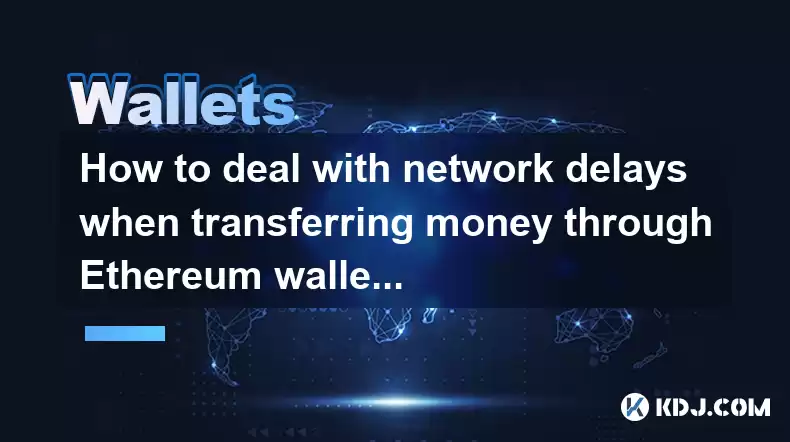
How to Deal with Network Delays When Transferring Money Through an Ethereum Wallet?
Ethereum, a popular blockchain network, facilitates cryptocurrency transactions. However, network congestion can lead to significant delays in transferring funds. Understanding the causes and implementing effective strategies to mitigate these delays is crucial for a smooth user experience. This article explores various methods to handle network delays during Ethereum transactions.
One of the primary causes of network delays is high transaction volume. When many users are simultaneously sending transactions, the network becomes congested, leading to slower processing times. This is particularly true during periods of high market volatility or when popular decentralized applications (dApps) experience surges in usage. The increased demand overwhelms the network's capacity, resulting in delays.
Another factor contributing to delays is gas fees. Gas fees are the transaction fees paid to miners to process transactions on the Ethereum network. High gas fees incentivize miners to prioritize transactions with higher fees, leading to slower processing times for transactions with lower fees. This can create a bottleneck, causing significant delays, especially for smaller transactions.
Network upgrades and maintenance can also temporarily disrupt transactions. Ethereum undergoes periodic upgrades to improve its functionality and scalability. During these upgrades, the network may be temporarily unavailable or experience reduced throughput, leading to transaction delays. Planned maintenance periods are usually announced in advance, allowing users to prepare.
So, how can you minimize the impact of these delays? Here are some strategies:
- Choose the right time to send transactions: Avoid peak hours when network congestion is likely to be highest. Experiment with different times of day or week to find periods with lower transaction volumes.
- Increase your gas fee: Offering a higher gas fee increases the likelihood of your transaction being processed quickly. While this can be costly, it guarantees faster confirmation. Use gas fee estimation tools to determine an appropriate amount.
- Use a reputable Ethereum wallet: Different wallets have different interfaces and features. Some wallets offer advanced options for gas fee management and transaction prioritization.
- Monitor your transaction status: Most wallets provide tools to track the status of your transaction. This allows you to monitor its progress and identify potential delays. Be patient; delays are sometimes unavoidable.
- Consider using a faster network: While Ethereum is widely used, other blockchain networks offer potentially faster transaction speeds and lower gas fees. Explore alternative networks if speed is critical.
- Batch transactions: If you need to send multiple transactions, consider batching them together. This can potentially save on gas fees and reduce the overall processing time.
- Understand the difference between pending and confirmed transactions: A pending transaction is still awaiting confirmation, while a confirmed transaction has been successfully added to the blockchain. Patience is key during the pending stage.
Dealing with network congestion requires patience and understanding. The Ethereum network, while robust, is subject to periods of high traffic. By employing the strategies outlined above, users can mitigate the impact of network delays and ensure smoother transactions.
Frequently Asked Questions:
Q: What is a gas fee and why is it important in dealing with network delays?
A: A gas fee is the cost of processing a transaction on the Ethereum network. Higher gas fees incentivize miners to prioritize your transaction, leading to faster confirmation times, especially during periods of high network congestion.
Q: How can I estimate the gas fee before sending a transaction?
A: Most Ethereum wallets provide gas fee estimation tools. These tools predict the required gas fee based on current network conditions. It's advisable to use these tools before sending a transaction to avoid unexpected delays.
Q: What should I do if my transaction is pending for an extended period?
A: If your transaction remains pending for an unusually long time, check the network status. If congestion is severe, you may need to increase your gas fee or wait for network conditions to improve. Contact your wallet provider if the problem persists.
Q: Are there alternative networks to Ethereum that offer faster transaction speeds?
A: Yes, several blockchain networks offer faster transaction speeds and potentially lower fees than Ethereum. Examples include Polygon, Solana, and Binance Smart Chain. However, each network has its own strengths and weaknesses.
Q: Can I cancel a pending Ethereum transaction?
A: Generally, you cannot directly cancel a pending Ethereum transaction. However, some wallets might offer the option to replace it with a new transaction with a higher gas fee. This effectively replaces the old transaction.
Q: What is the role of miners in Ethereum transaction processing and network delays?
A: Miners validate and process transactions on the Ethereum network. During periods of high demand, miners prioritize transactions with higher gas fees, potentially delaying transactions with lower fees. This contributes to network congestion.
Q: How does the size of a transaction affect processing time?
A: Larger transactions generally require more gas, increasing the processing time. Complex smart contract interactions can also lead to longer processing times. Minimizing the transaction's complexity can help reduce delays.
Q: What are some resources I can use to monitor Ethereum network congestion?
A: Various websites and tools provide real-time information on Ethereum network congestion, including gas prices and transaction speeds. Checking these resources before sending transactions can help you anticipate potential delays.
Disclaimer:info@kdj.com
The information provided is not trading advice. kdj.com does not assume any responsibility for any investments made based on the information provided in this article. Cryptocurrencies are highly volatile and it is highly recommended that you invest with caution after thorough research!
If you believe that the content used on this website infringes your copyright, please contact us immediately (info@kdj.com) and we will delete it promptly.
- Kazakhstan's Crypto Leap: Bitcoin ETF and Central Asia's Digital Finance Future
- 2025-08-13 12:45:19
- BlockDAG Presale Blazes Past $371M: Fundraising Frenzy Fuels Crypto Sensation
- 2025-08-13 13:05:21
- Meme Coins: Chasing the 2025 Surge – Which Will Moonshot?
- 2025-08-13 10:25:23
- Bitcoin's Wild Ride: Rally, Pullback, and What's Next
- 2025-08-13 10:25:23
- Bitcoin, Bitmax, and Institutional Demand: A New Era of Crypto Investment
- 2025-08-13 10:45:12
- Solana, ROAM, and Airdrops: What's the Buzz in 2025?
- 2025-08-13 11:35:13
Related knowledge
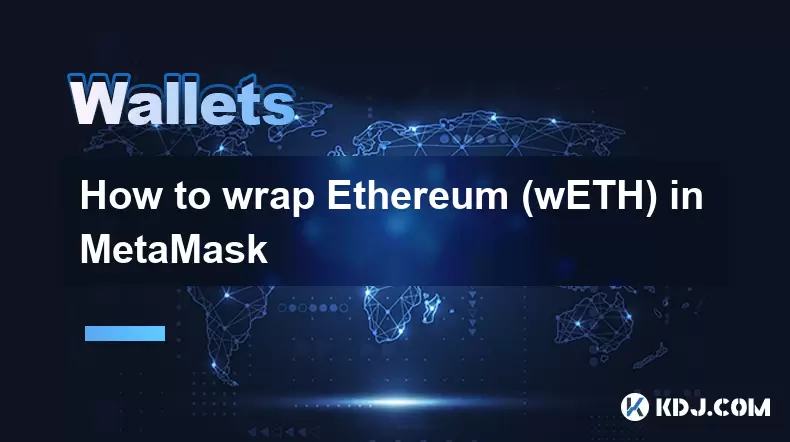
How to wrap Ethereum (wETH) in MetaMask
Aug 13,2025 at 11:36am
Understanding Wrapped Ethereum (wETH)Wrapped Ethereum (wETH) is a tokenized version of native Ethereum (ETH) that conforms to the ERC-20 standard, ena...

How to manage your portfolio in Exodus wallet
Aug 08,2025 at 10:07pm
Understanding the Exodus Wallet InterfaceThe Exodus wallet is a non-custodial cryptocurrency wallet that supports a wide range of digital assets. When...
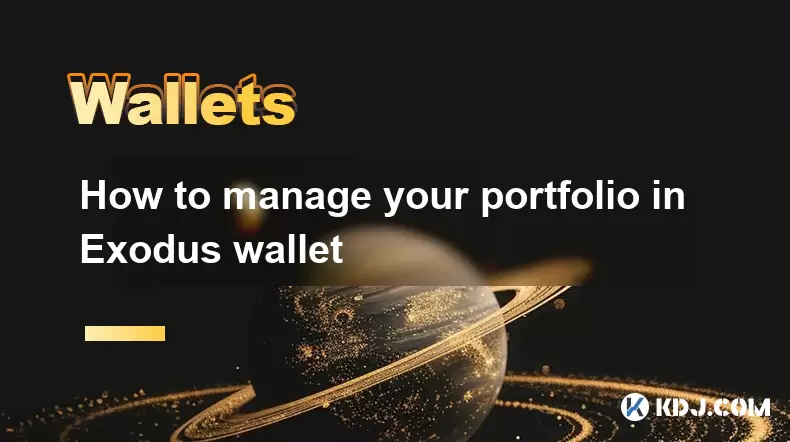
How to manage your portfolio in Exodus wallet
Aug 13,2025 at 11:35am
Understanding the Exodus Wallet InterfaceThe Exodus wallet is a non-custodial cryptocurrency wallet that supports a wide range of digital assets. Upon...

How to reset your MetaMask password
Aug 08,2025 at 01:28pm
Understanding the MetaMask Password Reset ProcessMany users confuse the MetaMask password with the seed phrase or private key, but they serve differen...
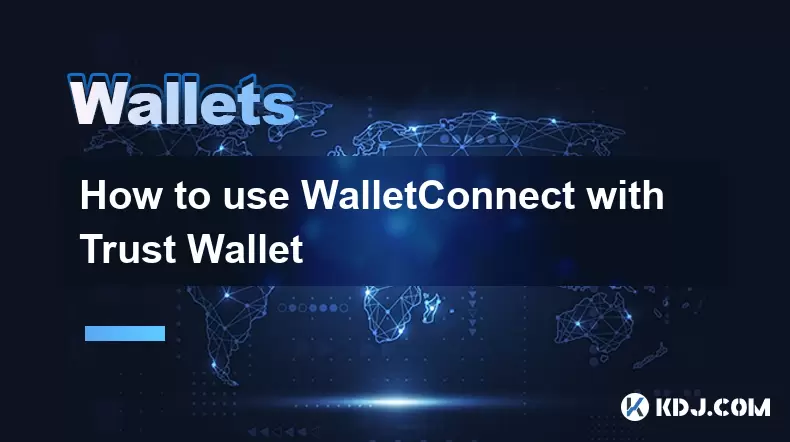
How to use WalletConnect with Trust Wallet
Aug 13,2025 at 01:07am
What Is WalletConnect and Why It Matters for Trust Wallet UsersWalletConnect is an open-source protocol that enables secure communication between dece...
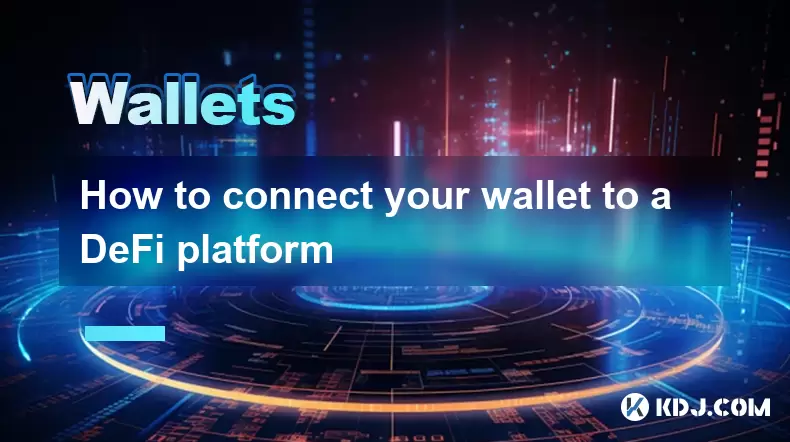
How to connect your wallet to a DeFi platform
Aug 13,2025 at 11:36am
Understanding Wallet Compatibility with DeFi PlatformsBefore connecting your wallet to any DeFi platform, it's essential to ensure your wallet is comp...

How to wrap Ethereum (wETH) in MetaMask
Aug 13,2025 at 11:36am
Understanding Wrapped Ethereum (wETH)Wrapped Ethereum (wETH) is a tokenized version of native Ethereum (ETH) that conforms to the ERC-20 standard, ena...

How to manage your portfolio in Exodus wallet
Aug 08,2025 at 10:07pm
Understanding the Exodus Wallet InterfaceThe Exodus wallet is a non-custodial cryptocurrency wallet that supports a wide range of digital assets. When...

How to manage your portfolio in Exodus wallet
Aug 13,2025 at 11:35am
Understanding the Exodus Wallet InterfaceThe Exodus wallet is a non-custodial cryptocurrency wallet that supports a wide range of digital assets. Upon...

How to reset your MetaMask password
Aug 08,2025 at 01:28pm
Understanding the MetaMask Password Reset ProcessMany users confuse the MetaMask password with the seed phrase or private key, but they serve differen...

How to use WalletConnect with Trust Wallet
Aug 13,2025 at 01:07am
What Is WalletConnect and Why It Matters for Trust Wallet UsersWalletConnect is an open-source protocol that enables secure communication between dece...

How to connect your wallet to a DeFi platform
Aug 13,2025 at 11:36am
Understanding Wallet Compatibility with DeFi PlatformsBefore connecting your wallet to any DeFi platform, it's essential to ensure your wallet is comp...
See all articles

























































































